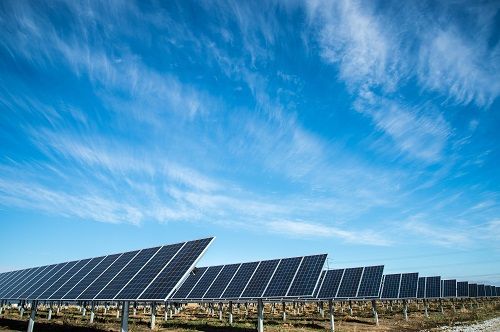The rising demand for electricity, an immensely positive political climate and growing opportunities for diversification are making investments in renewable energies increasingly attractive. And these are not the only advantages: "For institutional investors in particular, there is hardly any way around renewables", says Markus W. Voigt, CEO of the aream Group.
The fight against climate change alone makes renewable energies a megatrend. "In addition, there is an increasing demand for electricity due to more IT, due to increasing e-mobility and the conversion of industry away from fossil fuels", says Voigt. "In addition, the war in Ukraine has shown that Europe must become less dependent on imports for its energy supply." All this together will keep the demand for green power growing for decades.
"But there are other points that are important for investors", says Voigt. "Investments in wind or solar parks are almost uncorrelated with other asset classes and are therefore very suitable for diversification." The long-term investment horizon fits perfectly with the terms of the plants, which are usually calculated for 30 years. "The calculation does not take residual values into account, so the entire return is earned during the term", says Voigt. The investments are also suitable in terms of risk profile, contribute to the sustainability strategy of many companies and are even viewed favourably by the regulators: The treatment according to Solvency II is favourable, here the lower risk assessment applies to infrastructure (30 percent) compared to equities (39 percent) and private equity (49 percent).
In the meantime, the asset class "renewable energies" even allows for a good inland diversification: "With the different types of energy from wind to sun to biogas and water, a broadly diversified portfolio can be built up", says Voigt. In addition, there are opportunities to diversify regionally or along the value chain. "Investment opportunities can be found from project development to construction to operation", says Voigt. Just as revenue profiles can be defined and mixed through different purchase contracts ranging from feed-in tariffs to sales on the stock exchange to fixed supply contracts with individual buyers.
"And it is not to be expected that the attractiveness of renewable energies will diminish", says Voigt. Also because investments in the sector make a major contribution to corporate sustainability. "The closer the time for CO2 neutrality comes, the more investment will not only be made in new projects, but there will also be greater demand for existing plants", says Voigt. Political support is also likely to grow: "We see a great and growing willingness at all levels, from the UN to the EU to local communities, to finally pave the way for renewable energies", says Voigt. For example, renewables meet the criteria of the United Nations Sustainable Development Goals and sustainable energy infrastructure is part of the Sustainable Finance Initiative of the EU as well as at the country level. In addition, the EU taxonomy defines investments as sustainable - without any cutbacks.
PRESSEKONTAKT:
Leandra Kiebach
T: +49 (0)211 30 20 60 4-2
E: lk@aream.de
